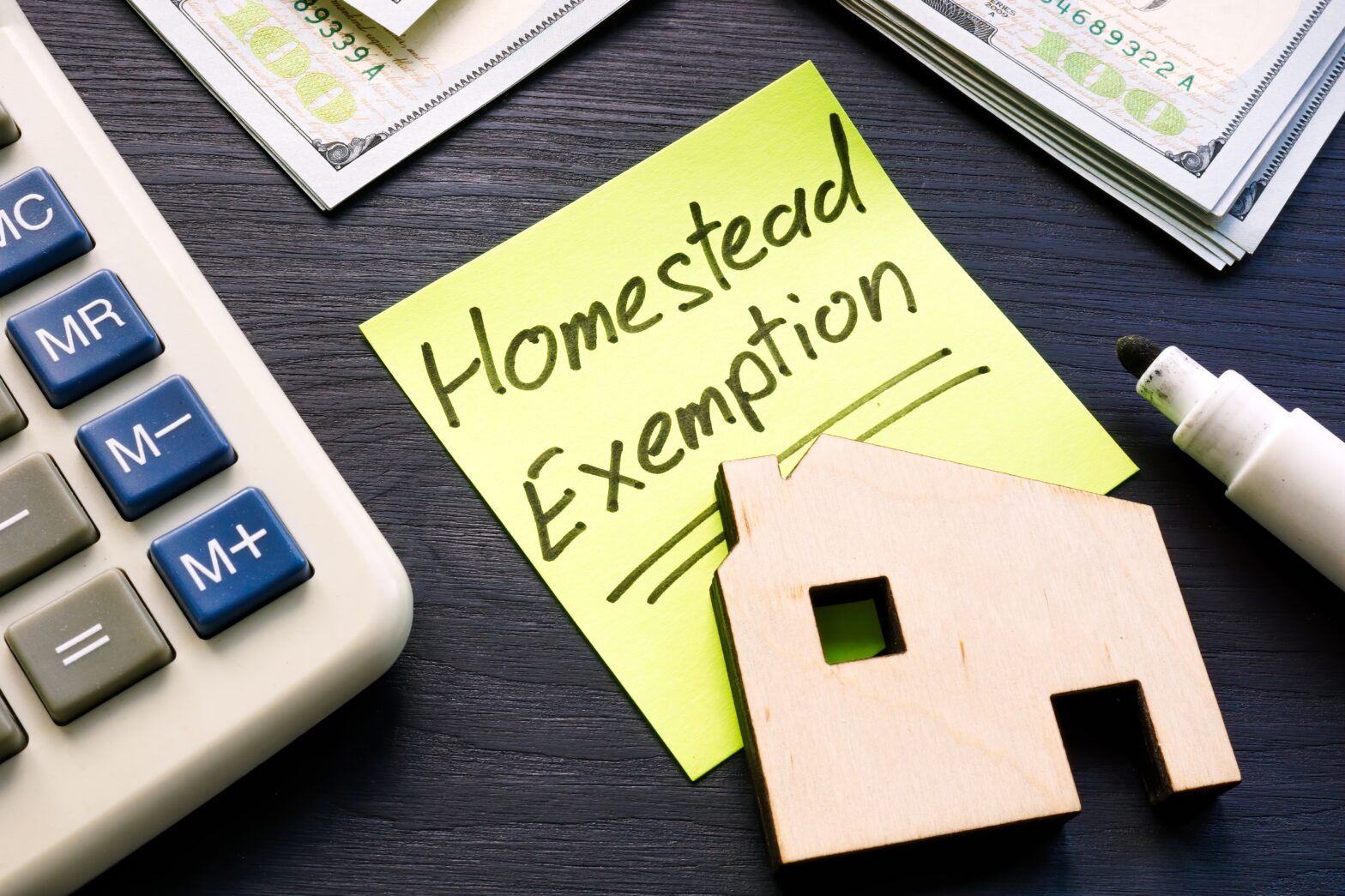
Real estate litigation in Florida often intersects a few different areas of law. Uniquely to our State of Florida is an embedded protection for the surviving spouse in the homestead
residence of the decedent. So first of all, what is homestead? Homestead is your primary residence designated and protected by the property appraiser after filling out their form and application. Why would you bother to do this? Plenty of advantages:
- Tax Benefits: Homeowners can receive significant property tax exemptions.
- Asset Protection: Homestead property is protected from forced sale by creditors.
- Devise and Descent: Restrictions on how homestead property can be transferred upon the owner's death.
Litigation can arise easily by failing to understand the third benefit. Here is what the Florid constitution says:
Florida Constitution, Article X, Section 4: Homestead; Exemptions
Section 4. Homestead; exemptions.— (a) There shall be exempt from forced sale under process of any court, and no judgment, decree or execution shall be a lien thereon, except for the payment of taxes and assessments thereon, obligations contracted for the purchase, improvement or repair thereof, or obligations contracted for house, field or other labor performed on the realty, the following property owned by a natural
person:
- homestead, if located outside a municipality, to the extent of one hundred sixty acres of contiguous land and improvements thereon, which shall not be reduced without the owner's consent by reason of subsequent inclusion in a municipality; or if located within a municipality, to the extent of one-half acre of contiguous land, upon which the exemption shall be limited to the residence of the owner or the owner's family;
- These exemptions shall inure to the surviving spouse or heirs of the owner.
- The homestead shall not be subject to devise if the owner is survived by spouse or minor child, except the homestead may be devised to the owner's spouse if there be no minor child. The owner of homestead real estate, joined by the spouse if married, may alienate the homestead by mortgage, sale or gift and, if married, may by deed transfer the title to an estate by the entirety with the spouse. If the owner or spouse is incompetent, the method of alienation or encumbrance shall be as provided by law.

So directly in Florida’s constitution a few protections. The homestead is protected from forced sale cannot be devised (meaning left in a Will or Trust) away from a Spouse or minor child and if we are talking about a lifetime conveyance must be done with the joinder of the spouse. That is the reason you will always see on deeds in the Florida the language of whether the grantor is a single person or married and further whether the subject property is the homestead residence of the grantor.
This rule is further articulated directly in Florida statutes as follows:
732.4015. Devise of homestead
- As provided by the State Constitution, the homestead shall not be subject to devise if the owner is survived by a spouse or a minor child or minor children, except that the homestead may be devised to the owner's spouse if there is no minor child or minor children.
- For the purposes of subsection (1), the term:
- “Owner” includes the grantor of a trust described in s. 733.707(3) that is evidenced by a written instrument which is in existence at the time of the grantor's death as if the interest held in trust was owned by the grantor.
- “Devise” includes a disposition by trust of that portion of the trust estate which, if titled in the name of the grantor of the trust, would be the grantor's homestead.
- If an interest in homestead has been devised to the surviving spouse as authorized by law and the constitution, and the surviving spouse's interest is disclaimed, the disclaimed interest shall pass in accordance with chapter 739.
So as codified in Chapter 732 and directly from our State’s constitution you cannot convey a homestead property if married without the joinder of the other spouse. Not only does Florida aw say that you have to leave homestead to a spouse but also the spouse may not get less than a fee simple interest by way of devise. Stirberg v. Fein, 357 So. 3d 1233 (Fla. 4 th DCA 2023). Luckily for those who have to deal with these restrictions they can be waived. Florida law has two powerful tools to waiver the spousal interest in homestead. One easy method is to have the spouse simply waive his or her homestead protections in the underlying conveyance. Florida Statute 732.7025 provides:
732.7025 Waiver of homestead rights through deed.—
- A spouse waives his or her rights as a surviving spouse with respect to the devise restrictions under s. 4(c), Art. X of the State Constitution if the following or substantially similar language is included in a deed:
- The waiver language in subsection (1) may not be considered a waiver of the protection against the owner’s creditor claims during the owner’s lifetime and after death. Such language may not be considered a waiver of the restrictions against alienation by mortgage, sale, gift, or deed without the joinder of the owner’s spouse.
“By executing or joining this deed, I intend to waive homestead rights that would otherwise prevent my spouse from devising the homestead property described in this deed to someone other than me.”
So if the grantor spouse in any deed is receiving less than fee simple interest in a Property he or she should include the above statutory reference in the conveyance to prevent title issues or potential litigation to void the conveyance. Keep in mind that any restriction of less than fee simple interest is void. For example a conveyance by both spouses to a Trust but the Trust provides that the surviving spouse is in any way limited versus owning the Property fee simple can be voided.
The other major tool that we use to sidestep these restrictions is a spousal waiver. Florida law now allows a spouse to waive all or part of their interest in a homestead and other rights embedded in the Probate code including elective share, exempt property or family allowance (these are all spousal rights in an estate proceeding). The waiver can include these provisions or simply waive the interests in the homestead that would otherwise prevent the conveyance:
732.702. Waiver of spousal rights
- The rights of a surviving spouse to an elective share, intestate share, pretermitted share,homestead, exempt property, family allowance, or to assert a claim under the Florida Uniform Disposition of Community Property Rights at Death Act as described in ss. 732.216–732.228, and preference in appointment as personal representative of an intestate estate or any of those rights, may be waived, wholly or partly, before or after marriage, by a written contract, agreement, or waiver, signed by the waiving party in the presence of two subscribing witnesses. The requirement of witnesses shall be applicable only to contracts, agreements, or waivers signed by Florida residents after the effective date of this law. Any contract, agreement, or waiver executed by a nonresident of Florida, either before or after this law takes effect, is valid in this state if valid when executed under the laws of the state or country where it was executed, whether or not he or she is a Florida resident at the time of death. Unless the waiver provides to
the contrary, a waiver of “all rights,” or equivalent language, in the property or estate of a present or prospective spouse, or a complete property settlement entered into after, or in anticipation of, separation, dissolution of marriage, or divorce, is a waiver of all rights to elective share, intestate share, pretermitted share, homestead, exempt property, family allowance, or to assert a claim under the Florida Uniform Disposition of Community Property Rights at Death Act as described in ss. 732.216–732.228, and preference in appointment as personal representative of an intestate estate, by the waiving party in the property of the other and a renunciation by the waiving party of all benefits that would otherwise pass to the waiving party from the other by intestate succession or by the provisions of any will executed before the written contract, agreement, or waiver. - Each spouse shall make a fair disclosure to the other of that spouse's estate if the agreement, contract, or waiver is executed after marriage. No disclosure shall be required for an agreement, contract, or waiver executed before marriage.
- No consideration other than the execution of the agreement, contract, or waiver shall be necessary to its validity, whether executed before or after marriage.
The valid conveyance of homestead is absolutely critical when designing your estate plan. The failure to use these tools or recognize a void conveyance is also a large source of real estate and probate litigation. If you are dealing with any of the issues contained in this article we would love to hear from you. All of our attorneys offer free, no obligation consultations and we handle real estate transactions and litigations everywhere in Florida.
Brice Zoecklein, Esq.
Zoecklein Law
813-501-8071
















